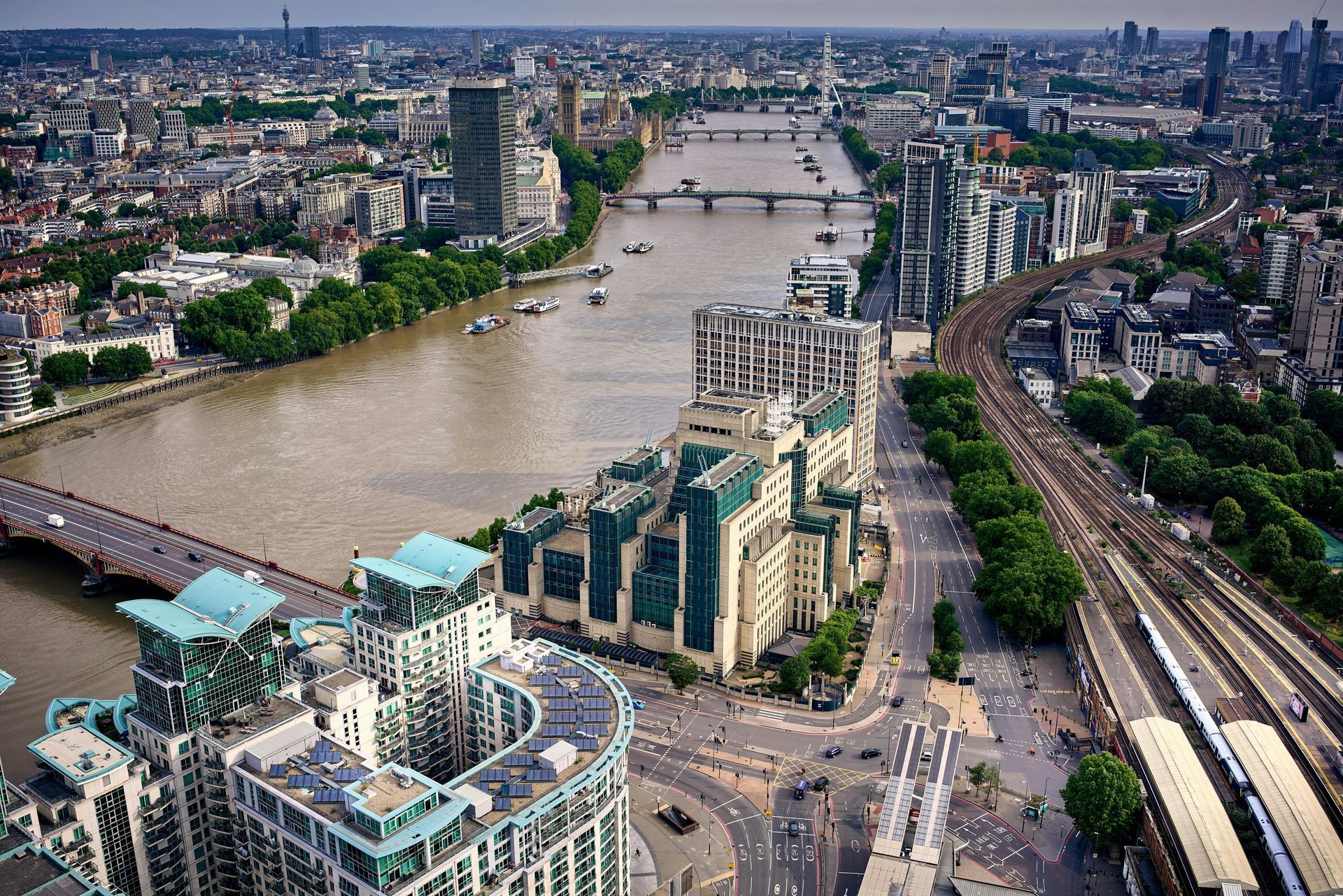Lakshmi Mittal and the Great British Non-Dom Tax Drama
April 2, 2025
Lakshmi Mittal and the Great British Non-Dom Tax Drama

As soon as billionaires start moving out, something strange is afoot. Lakshmi Mittal, the super-rich steel magnate behind ArcelorMittal--the world's largest steel company--is reported to be considering leaving Britain due to a potential end of non-domiciled (non-dom) tax status benefits in Britain.
Contact Us
Who Is Lakshmi Mittal Anyway?
Mittal stands out as being something special among his fellow billionaires; for years, he's lived comfortably in Britain while taking advantage of non-dom tax arrangements that enable individuals (like himself) to avoid UK taxes on foreign income as long as it was spent within British borders.
But these cosy days are over!
What Has Changed?
Starting April 2025, the UK will transition away from its non-dom system and toward something much less generous.
Key changes will include:
- End of Non-Dom Era: The remittance basis of taxation will be replaced by a new four-year exemption applicable to foreign income and gains from 6 April 2025.
- Global Assets Affected by UK Inheritance Tax: Transition to residence-based system for inheritance tax means that after being resident 10 out of 20 years, worldwide assets will be liable for IHT.
- Remittance Basis—Gone: Previously, non doms only paid tax on foreign earnings if remitted to the UK. Though there are transitionary rules to ease the impact, basically now, wherever you earn income, the UK taxman wants a share.
Simply put, the party is officially over now folk like Mittal are wondering whether staying put makes any sense.
Where Might the Wealthy Go?
When your fortune is at stake, you don't make decisions at random; that is why HNWIs such as Mittal are keenly scrutinising places that might allow them to keep more of their cash safely:
- UAE: No income tax, inheritance tax or wealth tax applies in this region.
- Portugal: Thanks to its Non-Habitual Residency scheme, sunny Portugal has become an appealing location for individuals who seek tax benefits without compromising on lifestyle.
- Switzerland and Monaco: Monaco has long been considered a tax haven because of its favorable personal and corporate tax rules. The country does not tax individuals on their income, and corporations within the country have favourable tax treatment.
- Italy: allows for long-term residence and access to Schengen countries. Under certain circumstances, a flat rate of tax of 7% on all foreign-sourced income is available to new residents of Italy.
Why Should the UK Worry?
Britain's Reputation at Risk
Packing their bags publicly doesn't exactly send out the message that Britain is ready for business; Mittal leaving could prompt other wealthy individuals to consider whether this country remains attractive.
Money Matters
Every time a billionaire leaves the UK economy, their absence leads to reduced investments, lower donations to charity and less lavish spending - not just with regards to taxes but also economically.
Politics
The government could run into trouble if new policies are seen to push away wealthy donors with money - not exactly an ideal recipe for voter appeal!
What should HNW people be Doing Now?
- Verify Your Status: Evaluate whether your current tax status remains advantageous under these new circumstances.
- Clarifying Your Tax Exposure Globally: Fully understand the tax repercussions associated with maintaining or cutting ties to the UK.
- Consider Alternatives: Assess potential jurisdictions such as the UAE or certain European nations that offer clearer tax regimes without inheritance or wealth taxes.
Final Thoughts
Mittal's potential exit encapsulates more than simply his tax bill; it spotlights a wider anxiety amongst wealthy individuals Decisions like these require careful thought, proactive planning, and expert advice.
Are You Worried About Tax Reform in the UK? Mosaic Chambers Group can provide independent, practical advice tailored to your circumstances.
Are you living in Dubai and want to know what the new Spring Statement means for your financial future, then join us on 24th April 2025 at the Avani Palm Hotel Dubai, for an evening of expert analysis, practical advice, and strategic networking. Our Founder Andy Wood will discuss tax policies already outlined in this area – in relation to income and gains and, importantly IHT for Non-UK long-term residents – and any new nuggets unveiled by Mrs Reeves.

Introduction More wealthy UK residents are exploring life overseas ahead of the 2026/27 tax year. Higher UK taxes, political uncertainty and a desire for a different way of living are all pushing people to look at alternatives. Four destinations stand out for high-net-worth UK individuals as at late 2025: 1. United Arab Emirates (Dubai) 2. Portugal 3. Switzerland 4. Malta Each offers a different blend of tax advantages, residency options and lifestyle. United Arab Emirates (Dubai) - Dubai is now the default choice for many UK entrepreneurs and professionals. Tax For individuals, there is currently no personal income tax on salaries, bonuses or most investment income, and no local capital gains or inheritance tax regime for individuals. There is VAT and a developing corporate tax regime, but personal tax remains far lighter than in the UK. The UK–UAE double tax treaty helps reduce the risk of the same income being taxed twice and needs to be considered alongside UK residence rules. Residency Common routes for UK nationals include: Employer- or company-sponsored residence visas Remote-worker visas for those employed or self-employed abroad Long-term “golden” style visas linked to investment, property or professional status Retirement options for over-55s. (All require private health insurance and periodic renewal.) Lifestyle Dubai offers a high standard of living, excellent connectivity and a large, well-established British community. Housing and schooling are expensive and the lifestyle can encourage overspending, but for many the tax position and opportunity outweigh the costs. Best for: Maximising net income and building or scaling a business in a dynamic, international city. Portugal - Portugal appeals to those who want EU residency, a milder climate and a slower pace of life. Tax The old NHR regime has closed to new applicants and been replaced by a newer incentive framework (often referred to as IFICI) aimed at certain professionals and activities. The UK–Portugal tax treaty reduces double taxation, and Portugal does not operate a classic wealth tax, though property-related charges can apply. (It's signed and ratified but not yet fully in force as of early 2026, which may slightly affect immediate tax planning). Residency Post-Brexit, common routes for UK nationals include: D7 visa – for those with sufficient passive income (pensions, investments, rentals). D8 / Digital Nomad visa – for remote workers with qualifying income from abroad. Work and other residence visas tied to employment or specific skills. These can lead to long-term residence and, ultimately, citizenship if physical presence and integration tests are met. Lifestyle Cost of living is generally below the UK (though higher in central Lisbon and the Algarve), English is widely spoken in cities, and the public and private healthcare systems are well regarded. There are large British and wider international communities. Best for: Those wanting EU residence, good quality of life and a balance of tax and lifestyle advantages. Switzerland - Switzerland attracts UK families who prioritise security, discretion and top-tier services. Tax Tax is set at federal, cantonal and communal level, so overall rates vary widely by canton. Well-chosen cantons can be very competitive for both individuals and companies. Private capital gains are not generally taxed, but there is an annual wealth tax on net assets, with rules depending on location. For suitable non-working individuals, some cantons still offer lump-sum (forfait) taxation, where tax is based on living costs rather than worldwide income, subject to minimum levels and conditions. Residency As non-EU nationals, UK citizens use: B permits – time-limited residence, often linked to work L permits – short-term residence for specific assignments C permits – longer-term settlement after sustained residence and integration Wealthy retirees and non-working individuals may be able to obtain residence based on financial self-sufficiency and, in some cantons, lump-sum taxation. Lifestyle High costs are offset by excellent infrastructure, schools and healthcare (with compulsory private health insurance). International communities are strong in Zurich, Geneva and other cities, though social life can feel more formal than Southern Europe. Best for: Those seeking stability, discretion and first-class public services and education, rather than the lowest day-to-day costs. Malta - Malta is a compact EU state with a very familiar feel for UK nationals: English is an official language and the legal and business environment is comfortable for British professionals. Tax Malta’s tax system and UK–Malta treaty can be particularly attractive where you hold significant foreign-source income. Under the Global Residence Programme, qualifying individuals can pay a favourable flat rate on foreign income remitted to Malta, while foreign capital gains kept offshore are generally not taxed in Malta. There is no separate wealth tax and no classic inheritance tax, though duties may apply to certain Maltese assets. The separate “golden passport” (citizenship by investment) route has been struck down by the EU’s top court, but residence programmes remain available. Residency Options for UK citizens include: Employer-sponsored Single Permits combining work and residence The Global Residence Programme for financially self-sufficient individuals meeting property and minimum tax thresholds Digital-nomad-style visas for remote workers Long-term residence after several years of compliant stay Lifestyle Costs (especially rent and property) are typically lower than in the UK outside the most fashionable areas. English is widely used in government and business, healthcare is solid, and London is only a short flight away. Best for: Those wanting an English-speaking EU base with favourable treatment of foreign-source income and a tight-knit expat community. How to decide & next steps - All four countries can work extremely well for UK high-net-worth individuals, but for different profiles: Choose Dubai if your priority is low personal tax on active income and you are comfortable with a high-energy city. Choose Portugal if EU residency, climate and lifestyle matter as much as tax. Choose Switzerland if stability, education and healthcare are at the top of your list. Choose Malta if you want an English-speaking EU base with flexible options for foreign income. The right answer depends on your overall wealth, income mix, family plans and how tied you remain to the UK. If you would like bespoke, confidential advice on whether remaining UK-resident or relocating to Dubai, Portugal, Switzerland or Malta is the better strategy for your situation, you are welcome to get in touch to explore your options in detail.

